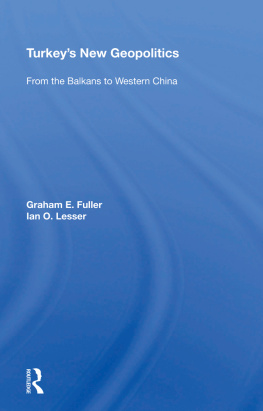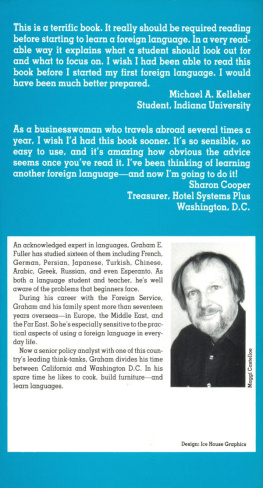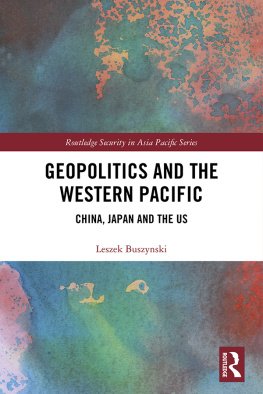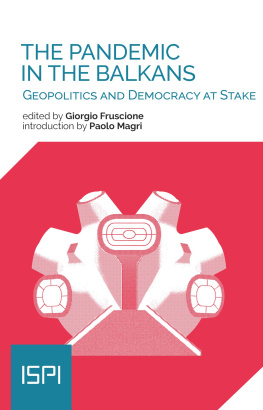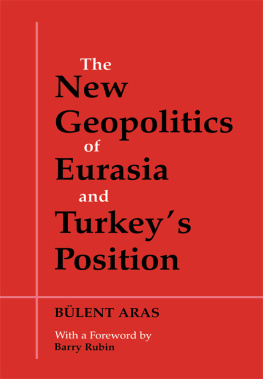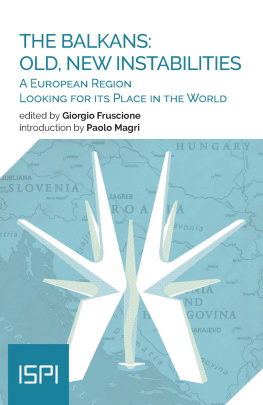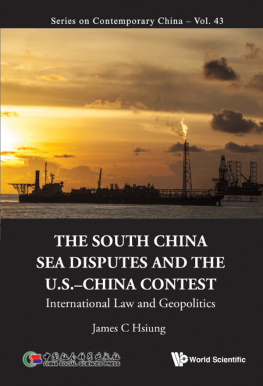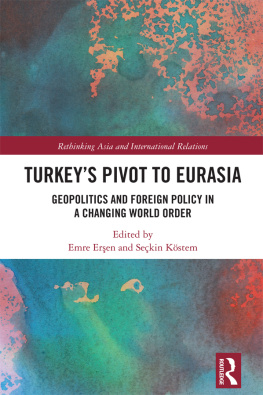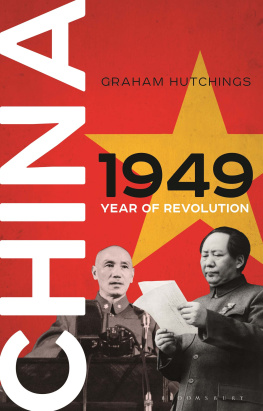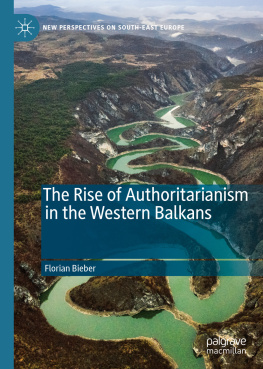First published 1993 by Westview Press
Published 2018 by Routledge
52 Vanderbilt Avenue, New York, NY 10017
2 Park Square, Milton Park, Abingdon, Oxon OX14 4RN
Routledge is an imprint of the Taylor & Francis Group, an informa business
Copyright 1993 by RAND
All rights reserved. No part of this book may be reprinted or reproduced or utilised in any form or by any electronic, mechanical, or other means, now known or hereafter invented, including photocopying and recording, or in any information storage or retrieval system, without permission in writing from the publishers.
Notice:
Product or corporate names may be trademarks or registered trademarks, and are used only for identification and explanation without intent to infringe.
Library of Congress Cataloging-in-Publication Data
Fuller, Graham E., 1939
Turkey's new geopolitics: from the Balkans to Western China /
Graham E. Fuller and Ian O. Lesser with Paul B. Henze and J. F.
Brown.
p. cm.
"A Rand study."
Includes bibliographical references and index.
ISBN 0-8133-8659-4ISBN 0-8133-8660-8 (pbk.)
1. TurkeyForeign relations1980- 2. TurkeyPolitics and
government1980- I. Lesser, Ian O., 1957- . II. Henze, Paul
B., 1924- . III. Brown, J. F. (James F.), 1928- . IV. Title.
DR603.F85 1993
327.4961dc20 93-20402
CIP
ISBN 13: 978-0-367-21221-6 (hbk)
Ambassador Morton Abramowitz
The world on Turkey's borders has changed radically in the last three years. To the north old and new states are trying to make the transition from communism to market economies. To the south the Middle East is no longer the stage on which Cold War rivalries are played out, but it still remains a melange of fundamentalism, authoritarianism, and militarism. And to the east new nations have emerged from the debris of the Soviet Union, each looking for a path into the twenty-first century. Turkey, in the center of it all, is striving to come to grips with these changes.
A fresh look at Turkey in its new surroundings is badly needed. In fact, since Turkey gets little attention from the American media or the American public, one could almost say that any look is a useful one. In 1990 the press incredibly managed to overlook an extraordinary two-day legislative battle between two Senate titans, Robert Dole and Robert Byrd, over a proposed Armenian genocide resolution and its potential impact on American-Turkish relations. This neglect prompts readers hoping to gain a grasp on events in Turkey to rely on such British publications as the Financial Times or the Economist.
The five essays composing this book are thus a badly needed and much welcomed introduction to the impact of recent upheavals on Turkey and its role in a nascent new world. While Paul Henze provides a broad treatment of such major domestic issues as the role of Islam in Turkish society and Turkey's deepening problems dealing with its Kurdish minority, the book's focus is on geopolitical and foreign policy concerns. The basis for this orientation is RAND's interest in the magnitude and suddenness of the transformation of Turkey's neighborhood.
All of the authors have experience in Turkey and keep in close touch with the current situation; two have lived there. They approach the Turkish scene sympathetically and with the conviction that Turkey can become a regional leader. They stress that the long-term importance of the country, deriving from its geography, must not be overlooked. They argue that Turkey's role in the world has been significantly enlarged by the breakup of the Soviet Union and that in the next decade Turkey's influence will stretch from the Balkans to Chinese Central Asia.
Greater integration into the West tops the list of Turkish priorities, but the authors are skeptical that Turkey will ever gain admittance to the European Community. Moreover, the demise of the Warsaw Pact, the strengthening of the United Nations, and the creation of organizations such as the Western European Union have caused NATO to lose at least some of its cogency. As NATO erodes, so too do Turkey's ties with its NATO allies. The "Southern flank," once an integral component of containment strategy, now resonates with a certain hollowness. While looking to readjust its foreign and defense policies to a changed world, Turkey clings to NATO, less for security than for its psychological value as Turkey's principal institutional tie to the West.
These essays cover much ground, quickly and effectively, providing a useful introduction to the new era emerging in Turkish foreign and defense policy. The threat of the past 400 yearsRussiahas been virtually eliminated. Turkey is now more secure than it has been since its birth as a republic after the First World War. Instead of being surrounded by an expansionist empire, Turkey finds itself bordered by a plethora of states that are militarily and economically inferior. Some even look to Turkey for help and support. While Turkey carefully watches its southern neighborsIran, Iraq, and Syriait faces no serious threat from them for at least the next decade, except from their capability to roil Turkey's troubled domestic scene by supporting the PKK (Kurdish Workers Party) insurgency. Despite its own internal weaknesses, Turkey is by far the strongest state in the area.
The book highlights a growing struggle between those who share Ataturk's devotion to keeping Turkey's interests focused on Anatolia and those who envision a more cosmopolitan role for their nation. Such a role, which dates back to the pan-Turkist movements abolished by Ataturk, stems from Turkey's awakened interest in Turkish-speaking populations outside of Turkey, an interest carefully squelched while the Soviet Union existed. Despite Turkey's secularismanother of Ataturk's lasting legaciesTurkey remains an Islamic nation that feels an affinity for some Muslim communities, especially those once ruled by the Ottomans. Bosnia and Herzegovina fit that label because the bulk of their 43 percent Muslim population was converted by the Turks, a tie buttressed through the years by the emigration of Bosnians to Turkey. The populace has been aroused by the atrocities perpetrated against Bosnian Muslims, and, while unilateral action is out of the question, Turkey is willing to contribute troops to an international peacemaking force.
Among the book's principal conclusions are the following:
1. Turkish foreign policy will increasingly focus on Central Asia, the Balkans, and the Middle East. In the Central Asian republics, Turkey's role will be critical and of significance to both Turkey and the West. The emerging states will look to Turkey as a model for their development as well as for material help. Turkey will take advantage of these newly opened markets for investment and trade and can serve as a funnel for Western investment.
Destructive nationalism in the Balkans clearly was dormant for the past half century, not dead. As one author suggests, Balkan history is now "making up for lost time." Turkey cannot avoid veering attention "back to the Balkans." Regardless of the outcome in Bosnia, with 2 million Muslims in Kosovo and another 500,000 in Macedonia, Turkey could be drawn into an expansion of the Yugoslav conflict.


